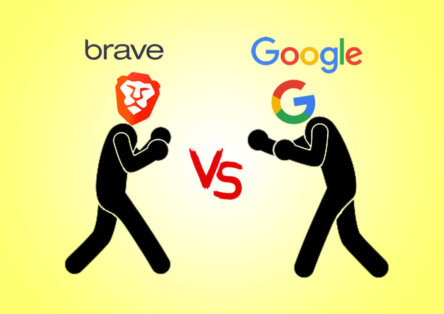Brave Search Engine Seeks to Challenge Google
It is no secret that Google is the most popular and widely used search engine in the world today. It has become a huge part of our everyday lives that we even use the search giant’s name to describe the act of looking things up online. No one knows exactly who can dethrone Google. However, this doesn’t mean that no one is willing to try. Just recently, Brave search engine joined the ranks of search engines that want to compete with Google and take a bigger slice of the search pie.
More Secure than Google?
With Google handling more than 92% of all online searches, going head to head against it a huge undertaking. However, Brave may have a good shot at taking on Google as the search giant faces intense pressure to protect the privacy of its users while governments around the world step up their antitrust scrutiny.
From the maker of a popular ad-blocking web browser, Brave dubs itself as a privacy-focused search engine. It will become the default search engine of the Brave browser in late 2021. Initially, it won’t show ads unlike Google, which supports itself through online advertisements. However, it will require users to pay to continue using the search engine ad-free later on.
By default, Brave would automatically remove ads on the web and block code that can track a user’s online behaviour. This is similar to what its rivals, such as Apple Safari, Microsoft Edge, and Mozilla Firefox, are currently doing. Later on, users can sign up for the search engine’s ad system, which would focus on user privacy and return a percentage of ad revenues to them via Brave’s cryptocurrency. Those who publish web content and videos on YouTube or Twitch can also opt in to receive payments from Brave users.
How Brave Search Works
Brave search engine was developed from Tailcat, which its parent’s company acquired from Germany’s Hubert Burda Media in early 2021. Tailcat works by delivering search results without tracking a user’s web activity or requiring them to create a profile.
It is no secret that searching the web for specific information, building an index of data, and returning with the most accurate search results require massive resources. However, unlike most of Google’s competitors, Brave would not re-use search results from the search giant. Instead, it would enlist the assistance of Brave users who would “crowd-source” the work for the fledgling search engine.
Those who would sign up for Brave’s data sharing will provide the search engine with information about what they look for online and the search results they click on. Easing concerns over data privacy issues, Brave Chief Executive Brendan Eich assured everyone that “clickstream” data, or those obtained from users, would be anonymised. This way, specific information won’t be tracked back into a single person.
Making the most of clickstream data is similar to what Microsoft did with Bing, which prompted Google to sue its competitor in 2011 for allegedly copying its search results. Like Microsoft, Eich believes that there’s nothing fundamentally wrong with using clickstream data in this manner. He argued that this system utilises machine learning technology that goes beyond copying Google’s search results. He added that machine learning systems aggregate and optimise results instead of merely copying them.
Eich also pointed out that Brave Search is a machine learning system that prioritises its users. And, unlike Bing, he said they would not “blindly scrape” search results from Google to provide users with the information they need.
However, he admitted that they would need to convince a significant number of people to start using Brave Search to improve their search engine’s capabilities. The more people are using Brave and the more clickstream data they can provide, the more accurate its search results.
While going against Google is indeed a challenge, Eich is confident that Brave search engine can provide a better alternative to the search giant. Brave released its first browser in 2016. Now, it’s available on various platforms, including Windows, Android, iOS, and Linux. Since the initial release of its web browser, the company’s user base has grown to 32 million people. Eich said they are targeting 50 million users by the end of 2021.
Is Your Website Optimised for Search Engines?
With a growing number of search engines servicing online users these days, it’s vital that your website is optimised for most of them, not just Google. Although Google remains the most popular and widely used search engine in the world today, some people are looking for alternatives to the search giant due to data privacy concerns. For this reason, it certainly helps to have a website optimised for different search engines.
If you need a more robust SEO strategy, our team at Springhill Marketing are happy to lend you our expertise. We can provide you with SEO solutions tailored to your specific needs and requirements. Please speak with us today.
Drive Your Business Towards The Best Results.
Talk to us about how we can help.












